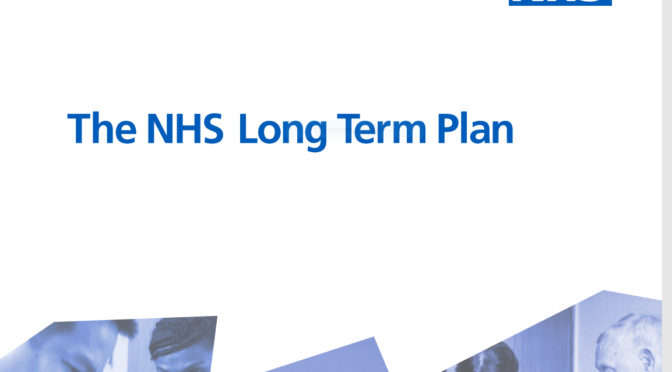Posted By: Amy Tubb
8th January 2019
2 minute read

January 7th saw the launch of the NHS Long Term Plan, setting out their ambitions for health care in England, including many positive goals for perinatal mental health.
Commenting on the publication of the NHS long term plan, The Maternal Mental Health Alliance (MMHA) Director Emily Slater welcomed the plan’s announcement and commitment to women and families in England, in particular the news of an increase in services to benefit more women and the extension of specialist mental health support for new parents, which will now be offered for two years after the birth of their child.
Emily Slater said:
“The Maternal Mental Health Alliance is really pleased to see that the NHS has committed to expanding perinatal mental health services and helping more women and families access vital treatment. The details of the long-term plan signals that the NHS wants to build on the success it has had creating specialist perinatal mental health services to ensure more women and families can access essential, lifesaving support.”
“Doubling the period during which women will be able to access psychiatric assessments and care after birth to two years and offering partners access to mental health services, will make a difference to women and families across England.”
“We welcome the £2.3bn set aside for mental health services, which will continue to tackle the long-established underfunding within mental health and work towards parity between physical and mental health.”
“The plan does not mention parent-infant services and how these will provide support for families, which would help deliver NHS England’s goal for all children and young people who need specialist mental health care to be able to access it, so we would welcome information on this. We would also like to see more details on what commitments the Government will make to local authorities funding, to ensure they can deliver the social care and public health services, including health visitors, that women and families need."
Background:
The NHS long term plan, “will improve access to and the quality of perinatal mental health care for mothers, their partners and children by:
• Increasing access to evidence-based care for women with moderate to severe perinatal mental health difficulties and a personality disorder diagnosis, to benefit an additional 24,000 women per year by 2023/24, in addition to the extra 30,000 women getting specialist help by 2020/21. Care provided by specialist perinatal mental health services will be available from preconception to 24 months after birth (care is currently provided from preconception to 12 months after birth), in line with the cross-government ambition for women and children focusing on the first 1,001 critical days of a child’s life;
• Expanding access to evidence-based psychological therapies within specialist perinatal mental health services so that they also include parent-infant, couple, co-parenting and family interventions;
• Offering fathers/partners of women accessing specialist perinatal mental health services and maternity outreach clinics evidence-based assessment for their mental health and signposting to support as required. This will contribute to helping to care for the 5-10% of fathers who experience mental health difficulties during the perinatal period;
• Increasing access to evidence-based psychological support and therapy, including digital options, in a maternity setting. Maternity outreach clinics will integrate maternity, reproductive health and psychological therapy for women experiencing mental health difficulties directly arising from, or related to, the maternity experience.”
Read the full report of the plan, including commitments to Maternity Services and Children’s and Young Peoples mental health services.